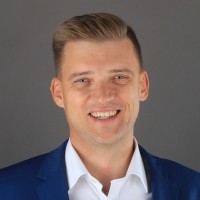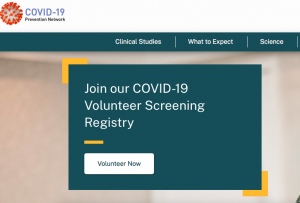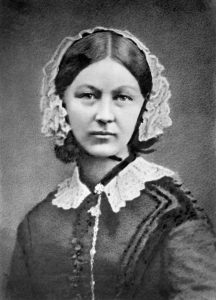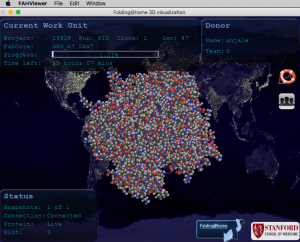
Extending a warm welcome to a guest lecturer from Hungary!


This question was posed by a student in a recent class. You can help the National Institutes of Health with their studies of the COVID vaccine (these studies are called “clinical trials”). For more information, visit:
https://www.coronaviruspreventionnetwork.org/about-covpn/

Let’s all pitch in and get our flu shot during this difficult pandemic time! Though the seasonal flu immunization is not always on the minds of the young and the healthy, let’s do our part by getting the vaccine to prevent the chance of contracting flu and COVID. If you’re uneasy about the flu shot, review the attached information about the flu vaccine (this is the CDC handout that is given out when you receive a flu shot). Many employees and nearly all insurance will cover the cost of a flu shot. Many county health departments also provide for free access for those not covered by insurance.

How many of us have a clean desk, uncluttered mind, and regular routine as we pursue projects?
In the 1880s, an Australian student named Richard Hodgson had the opportunity to study philosophy and literature at St. John’s College College, Cambridge (in the United Kingdom). It was a big investment in time and money to move from Australia to England, so he was determined to make the most of his chance. His recounted daily schedule:
He rose at 7:30am every morning, having the same breakfast of an egg, milk, bread and tea at 8am. For an hour he read. From 9am-noon, he wrote essays (his school assignments) or attended class. At noon, he ate a lunch of bread and tea. He then read until 3:45pm. He then played tennis before having a snack. Post-snack, it was additional workouts: weights, fencing, or boxing. His 9pm dinner consisted of bread, eggs, and tea. Following dinner, he read poetry until his 11:30pm bedtime.
In a letter to a friend, he commented on his routine, saying: “regularity for the organism is everything”
Of course, there was no radio, TV, or internet to distract him. But he avoided reading the daily newspaper or other magazines, never went to gambling parlors (where people played cards and socialized), bars (where other students often spent time), and coffee shops (which he presumably regarded as a waste of time or distracting).
How much of today’s life (supposedly better) takes us away from our important life goals? Today’s clutter include myriad food choices to select from (and the required time to pick up and wait for food), filling idle time with whatever is on the internet or streaming video (instead of devoting time to goal-directed reading). Mr. Hodgson never had time to be bored because his routine was dedicated to his singular goal of learning as much as possible. Note his dedication to physical fitness in the 1880s. Mens sana in corpore sano.
What is your academic (or other life) goal? How much time do you dedicate toward this goal on a daily basis? How much time is wasted on things that don’t help you accomplish your goal (video games, deciding what to eat, checking your phone)?
Recounted by Deborah Blum, professor of science journalism, University of Wisconsin

The World Health Organization (W.H.O.) has designated 2020 as the “Year of the Nurse”. In celebration of the professionals who provide 90% of a patient’s contact with a health worker, a few facts about one of the world’s most famous nurses. British nurse Florence Nightingale (who lived in the late 1800s) accomplished the following:
• She wrote around 200 (!) books and papers during her nursing career.
• In 1860 she drew a revolutionary version of the pie-chart (called the Coxcomb diagram) showing infection rates of British soldiers and made the case for hospital disinfection, making her a pioneer in infographic presentation.
• She spoke 4 languages very well (English, French, German, and Italian) and knew the classical languages Latin and Greek.
• Campaigned the British government for laws to improve hospital sanitation (specifically running water), which dramatically decreased death rates due to infection.
• Her birthday, May 12, is celebrated as International Nurses Day.
• Her parents disapproved of her career choice.
(Sources: The Economist and Mental Floss magazines)

Unlocking the DNA sequence was celebrated in the early 2000s as providing the key to curing disease. Overlooked is the relative lack of information about the structure of folded proteins. Most of the known protein structures studied are bacterial; of all the known protein structures, only 25% are human (2017 data). The proteins in our bodies are responsible for everything from sending signals in autoimmune disease to driving the uncontrolled growth in cancer. Knowing the structure of proteins allows researchers to design and build drugs that impair their action.
You can contribute to unlocking the structure of proteins with your desktop/laptop computer and internet connection. Through the Folding@Home research project run by a Stanford professor, you can load a free program onto your computer that runs in the background. Using your computer’s processing power, folding simulations are run and the data you generate contributes to research. The program runs mathematical calculations to determine how the proteins will fold in the most energetically favorable shape. By unlocking the computer power of computers all over the world, protein structures can be determined and used by researchers to better understand disease.
foldingathome.org
The National Institutes of Health are the nation’s premier federally-funded research labs conducting experiments to further human health. Many of the world’s leading discoveries have been made by researchers at this Bethesda, MD campus, including discovery of the virus that causes AIDS and the complete decoding of the human genome. Every fall, the office coordinating education reaches out to DC-area community college students to: introduce them to what the NIH does, offer tips on networking & resume writing and provide exposure to a network or internship & job opportunities at the NIH. Researchers from all over the world travel to work at the NIH and NVCC students have an opportunity to spend the day through a very rich activity. Looking forward to seeing you at this year’s event!